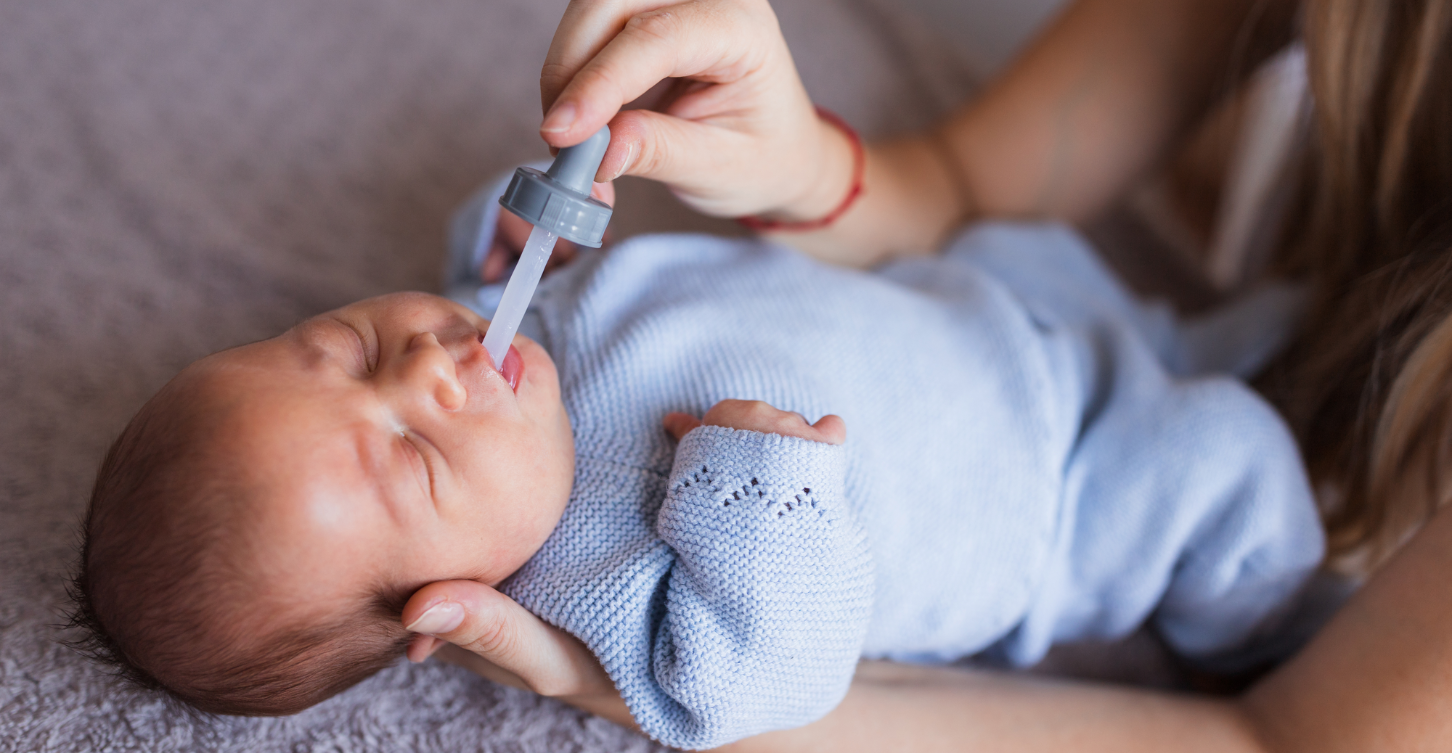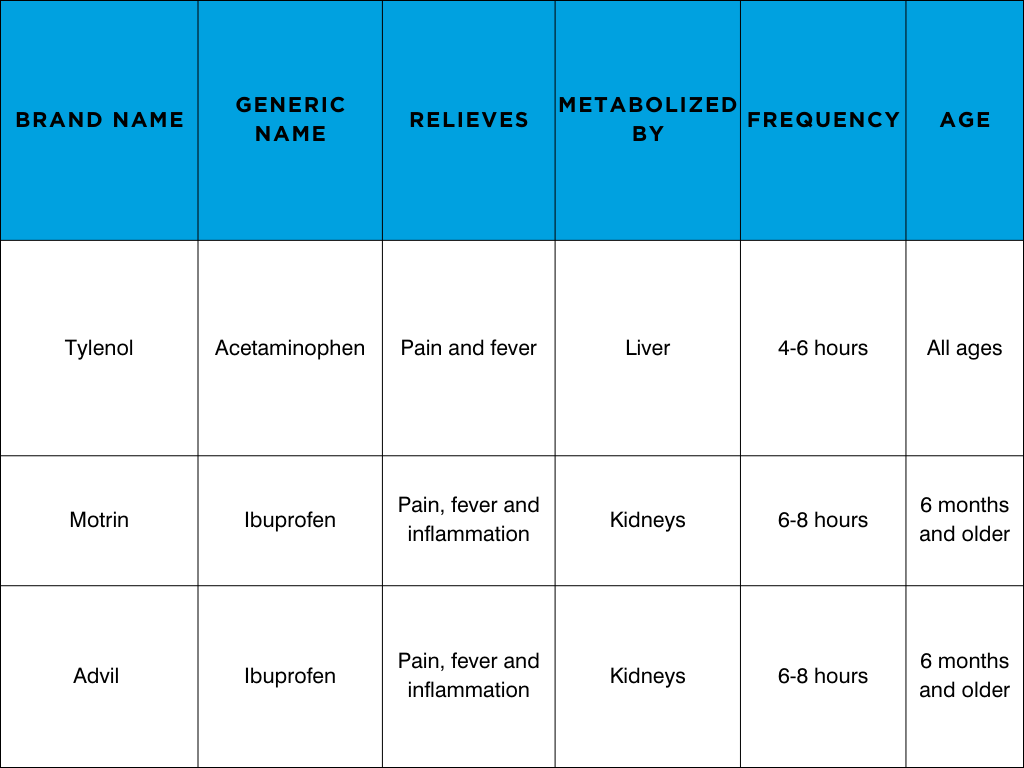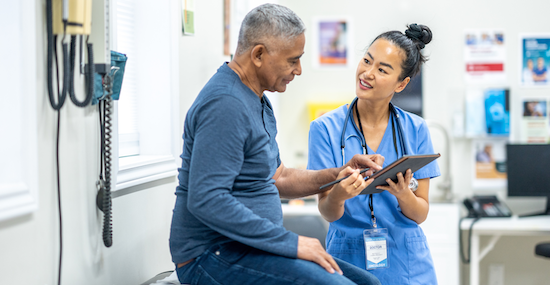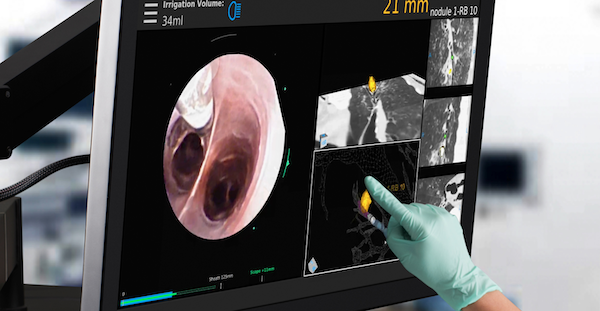Children's Tylenol Shortage: What Parents Can Do
January 30, 2023
By: Tallahassee Memorial HealthCare
Categories: Healthy Living, Pediatrics
Parents across the country with sick children are going to their local pharmacies in search of over-the-counter fever reducers like Tylenol and Motrin and finding nothing but empty shelves. While the Food and Drug Administration (FDA) has not listed these medications on their official list of “drug shortages,” supplies of these liquid pediatric formulas – often parents’ first course of treatment for a sick little one – have become hard to come by in many states.
At Tallahassee Memorial HealthCare (TMH), we know it can be stressful to have a sick child, especially when you find yourself staring at an empty shelf where you thought you’d find something that could help. Here are a few things you can do if you find yourself in this predicament:
Look for Generics
While you may not be able to find name brand Tylenol or Motrin, you may find generic versions in the aisles of your local pharmacy. To identify them, it’s important to understand what Tylenol and Motrin are.
The generic form of Tylenol is acetaminophen, while Motrin and Advil’s generic form is ibuprofen.
Tylenol reduces pain and fever while Advil and Motrin are nonsteroidal anti-inflammatory drugs (NSAIDS), which reduce pain, fever and inflammation.
Parents can administer Tylenol every four to six hours and Advil or Motrin every six to eight hours. Tylenol is not harsh on the digestive system, but Motrin and Advil should never be taken on an empty stomach, or they may cause digestive irritation.
Tylenol is metabolized by the liver while Advil and Motrin are metabolized by the kidneys, so parents of children with kidney or liver disease should consult their pediatrician before using any NSAIDS.

It’s also important to note that children under 6 months should not be given ibuprofen, and you should never give a child under the age of 12 the adult forms of these medications.
When administering the adult version to a child over 12, consult your pediatrician or pharmacist. Children under 18 should never be given aspirin because it may cause serious health issues for children and teenagers.
If you’ve looked for generic medications and still can’t find what you’re looking for, here are a few more options you can try.
1. Shop Around
Just because one store is out of stock doesn’t mean they all are. Some stores are receiving small supplies and putting them on the shelves while limiting purchasing. You may be able to find some by shopping around at several local retailers.
2. Don’t Hoard
If you do find what you’re looking for, don’t buy more than what you need. Remember that other parents are in the same situation and hoarding the small supply that does exist on shelves will only make matters worse.
3. Try Other Remedies
For a Fever: If your child has a fever, run a lukewarm (not cold) bath for them. Remember that a cold bath can induce shivering and make a fever worse. A cool washcloth on the head or neck can also provide comfort. You can keep their room at a cool temperature, use a fan to keep cool air moving and dress them in light clothing. Avoid dehydration while also helping them regulate their temperature by having your child drink extra fluids like water or Pedialyte.
For Respiratory Illness: Eating a popsicle or two teaspoons of honey can soothe coughs and sore throats in children over 1-year-old. If your child is 6 months to 1-year-old, give them warm fluids like apple juice. For a stuffy or runny nose, salt water nasal sprays can be helpful. A humidifier can also help to increase the moisture in the air and provide some comfort.
4. Prevent Sickness
While it may seem like an impossible task to keep your child from getting sick, helping them remember to regularly wash their hands and perform good general hygiene can prevent sickness from spreading. Flu vaccinations can also be given to children 6 months and older. Do your best to keep your child away from those who may get them sick.
5. Remember That Not All Fevers Require Medications
For many children, treating a fever won’t cure or shorten the duration of their sickness, it simply helps with symptoms, but any fever 105º or higher that’s associated with trouble breathing, shortness of breath, changes in mental state or seizure should be evaluated by a doctor.
6. Talk to Your Doctor and Pharmacist
Your pediatrician or local pharmacist may be able to suggest alternative medications or other ways to keep your child comfortable.
When to Seek Medical Care
Most fevers and common colds can be treated at home, but you should call your child’s pediatrician if:
- A child younger than 2 months has a fever or 100.5ºF or higher
- A child older than 2 months has a temperature higher than 102.2ºF or higher
- They have a fever for more than three days
- They are wheezing or have trouble breathing
- They can’t keep fluids down
- They don’t urinate for more than six hours
If your child has sickle cell disease or any other chronic medical illness, talk to your pediatrician specifically about when to seek medical care for a fever.
Avoid the emergency room unless you think your child is experiencing a medical emergency. Instead, call your pediatrician or visit one of TMH’s two Urgent Care locations.
For more children’s health resources like this, subscribe to our Sweet Peas Pregnancy & Parenting Club.
Written by: Dr. Thomas Truman, MD




